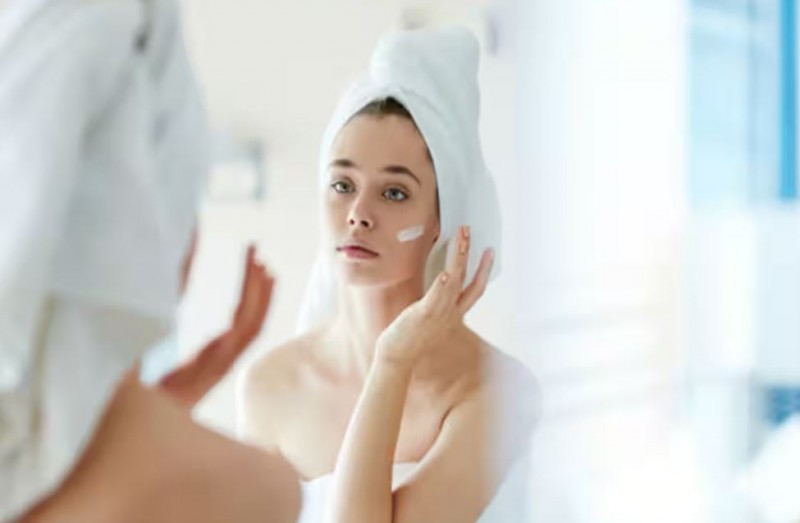
As the monsoon season sets in, bringing relief from the scorching heat of summer, it also ushers in its own set of challenges, particularly for our skin. While the weather turns cooler and the air feels fresher, increased humidity and frequent rains can wreak havoc on our skin, leading to various issues if not properly cared for. Contrary to popular belief, the need for sunscreen does not diminish with the onset of monsoon; in fact, it becomes just as crucial as during the sunny summer months.
Why Sunscreen Matters During Monsoon
Sunscreen is often associated with protecting the skin from sunburns and tanning caused by direct exposure to UV rays during summer. However, its role extends beyond just UV protection. During monsoon, despite the cloud cover and intermittent rains, harmful UV rays can still penetrate through the clouds and cause damage to our skin. Moreover, after a rainy spell, when the sun peeks out, it can be particularly intense, posing a risk of UV-induced skin damage. Therefore, wearing sunscreen remains essential to shield the skin from these invisible yet potent rays.
Common Skin Issues During Monsoon
The monsoon weather brings with it increased humidity, which can lead to clogged pores and acne breakouts, especially for those with oily or combination skin types. The excess moisture in the air can also weaken the skin's natural barrier, making it more susceptible to infections and irritations. Moreover, fungal infections like ringworm and athlete's foot tend to thrive in warm, moist environments, making it imperative to keep the skin clean and dry.
Choosing the Right Sunscreen for Monsoon
When it comes to selecting sunscreen for the monsoon season, there are several factors to consider:
Formulation: Sunscreen is available in various forms such as lotions, creams, gels, and sprays. During monsoon, lighter formulations like gels or non-comedogenic (non-pore-clogging) creams are preferable, as they are less likely to feel heavy or greasy on the skin.
SPF Level: The Sun Protection Factor (SPF) indicates the level of protection against UVB rays, which cause sunburns. Dermatologists recommend using a broad-spectrum sunscreen with SPF 30 or higher, even during monsoon, to ensure adequate protection against both UVB and UVA rays.
Water Resistance: Opt for a sunscreen that is water-resistant, especially if you anticipate sweating or getting wet in the rain. Water-resistant sunscreens adhere better to the skin and provide longer-lasting protection, despite exposure to moisture.
Non-Comedogenic: This is crucial for those prone to acne or oily skin. Non-comedogenic sunscreens are formulated to not block pores, reducing the risk of breakouts during humid weather conditions.
Tips for Using Sunscreen Effectively During Monsoon
Apply Generously: Use enough sunscreen to cover all exposed areas of the skin, including the face, neck, arms, and any other body parts not covered by clothing.
Reapply Frequently: Even if a sunscreen claims to be water-resistant, it should be reapplied every two hours, especially if you are outdoors or sweating excessively.
Choose Daylight Hours: Apply sunscreen at least 15-20 minutes before stepping out into the sun to allow it to absorb into the skin properly.
Complement with Skincare: Alongside sunscreen, maintain a good skincare routine that includes gentle cleansing and moisturizing to keep your skin healthy and hydrated.
In essence, while the monsoon season brings relief from the intense heat, it also demands extra care for our skin. Sunscreen plays a pivotal role in protecting against UV rays and maintaining skin health year-round, including during monsoon. By choosing the right sunscreen and incorporating it into your daily skincare regimen, you can ensure that your skin remains protected and radiant despite the challenges posed by the rainy season. Embrace sunscreen as a year-round essential, and your skin will thank you with its resilience and glow.
African Swine Fever Outbreak Hits Kerala's Thrissur District, Culling Ordered
Samantha Ruth Prabhu's Health Tip Sparks Controversy, Doctor Calls it 'Dangerous' and 'Irresponsible
Tesla Unveils Second-Gen Robot Optimus at AI Conference: Why It Matters